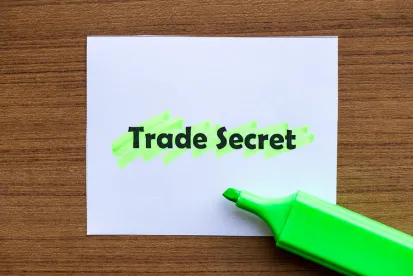On June 3, the Texas Fourth Court of Appeals reversed and remanded the dumbfounding $740 million award in Title Source v. HouseCanary – a welcome development for American innovation and business collaboration. On the back of years-long litigation, a fresh trial of the case can offer important signals for corporations on the risks and rewards of collaboration, as well as deliver much-needed guidance on best practices to navigate already murky trade secret protections.
For the uninitiated, litigation between HouseCanary and Title Source (now Amrock) was borne out of a contract the two companies entered in 2015. The arrangement obligated the delivery of an automated valuation model (AVM) and an app to Title Source at a rate of $5 million per year for HouseCanary’s efforts. Title Source intended to use the software and app as a platform to provide customers the ability to assess property values digitally alongside other services the company offers, like title insurance and closing services. After HouseCanary failed to meet its contractual obligation to deliver a working AVM app, Title Source sued for breach of contract.
HouseCanary then filed a counter claim including allegations that Title Source had misappropriated proprietary information, in this case trade secrets, in an attempt to make an app of its [Title Source’s] own. After a six-week trial that concluded in March 2018, a Texas jury decided in favor of HouseCanary and awarded nearly three-quarters of a billion dollars - one of the largest tort settlements of the year.
Should anyone be keeping score at home, that means the case’s settlement was valued at nearly 150 times the annual payout HouseCanary was to receive from its work with Title Source and dwarfed the firm’s multiple rounds of venture funding by over $600 million. For HouseCanary, litigation proved more profitable than any of its own business ventures, and the settlement certainly outstripped the going market rates on AVMs.
By the conclusion of the original trial, it seemed clear that Title Source had not misappropriated HouseCanary’s trade secrets or proprietary information in building its own app. Further, HouseCanary’s own expert witness testified that there weren’t “any fingerprints, any clues, any reference to any HouseCanary technology” in the app Title Source developed on its own.
Regrettably, the jury’s finding against Title Source was based on inaccurate and incomplete information, unsubstantiated inadmissible character attacks, and back-of-the-napkin math from a questionable damages ‘expert.’ It seemed to be more focused on sticking it to corporate America rather than the actual facts and merits of the case. Not only was the jury gravely mislead, but they also never heard critical information which came to light days after the trial concluded.
Post-trial statements by a former HouseCanary executive turned whistleblower clarified that there was never a “working version” of the app to be delivered to Title Source, and per three more former HouseCanary executives, that the company didn’t have “any IP to steal.” The cogency of HouseCanary’s allegations were further thrown into question when the company, six weeks after the trial’s closure, moved to seal a number of exhibited documents from court record.
As I wrote previously, once the sealing motion was overturned, the documents should “provide another look at the technology in question, which will provide clarity whether there were trade secrets to be stolen.” This is especially important when considered in tandem with the whistleblower testimony.
These and other erroneous inclusions and fatal procedural errors led to a Texas appellate court overturning the verdict and ordering a new trial. The ramifications of the decision in the new trial promise to be immense, especially if HouseCanary invokes Texas’ Uniform Trade Secrets Act for a second time. The Act has been adopted by 47 states total, and significantly broadens the implications of this trial for business operations in all kinds of industries by setting precedent for other lawsuits.
Trade secret litigation has increased tremendously in the past decade, with over 2,700 cases since 2009; add on the massive original settlement and the ruling may very well set the tone for the future of trade secret litigation and the standard of intellectual property protections.
Given the new evidence that has emerged since the jury delivered its decision in 2018, the cards certainly appear stacked against HouseCanary successfully duping the retrial jury. There is little doubt that businesses and innovators everywhere will be awaiting the verdict of the Texas court for clarity on trade secret protections and our court system’s tolerance for overwhelmingly apparent legal gamesmanship.




 />i
/>i

